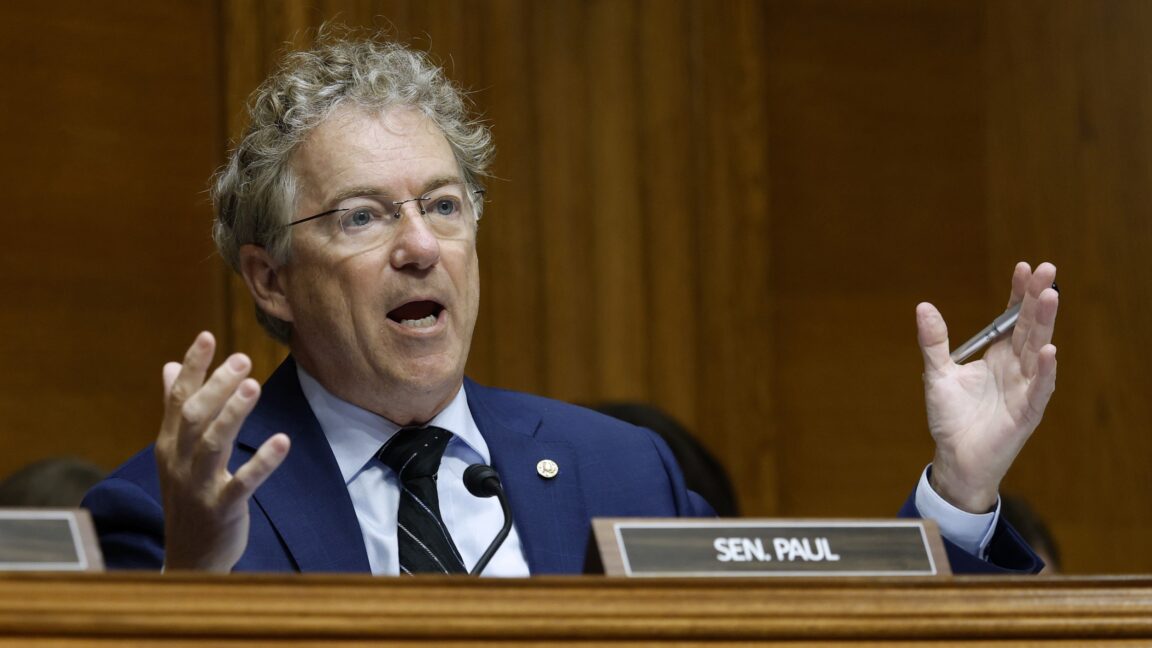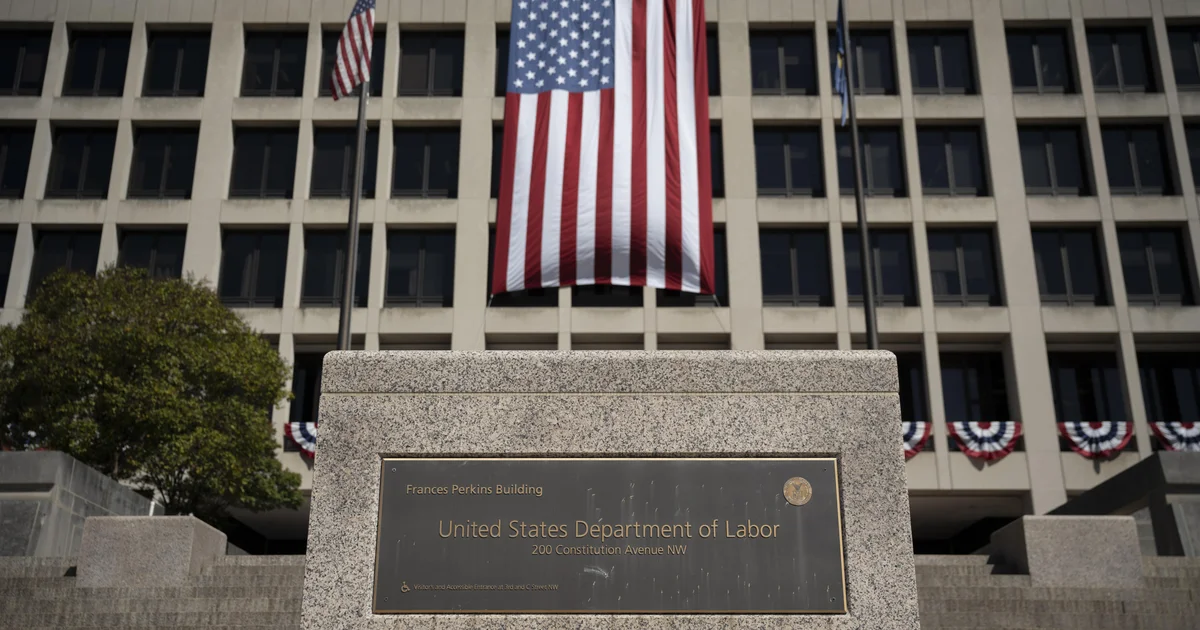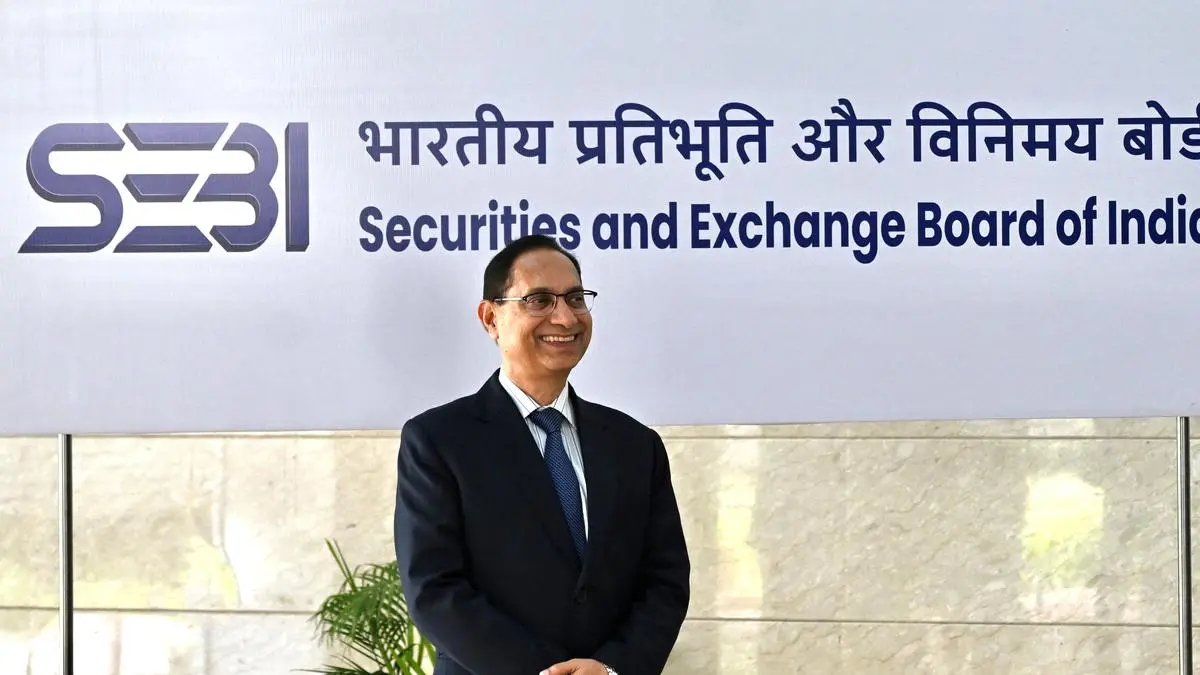
Sen. Rand Paul (R-Ky.) slammed Federal Communications Commission Chairman Brendan Carr for policing speech after the FCC chair pressured ABC into suspending Jimmy Kimmel.
Carr’s statement that ABC must take action against Kimmel was “absolutely inappropriate,” Paul said on NBC’s Meet the Press yesterday. “Brendan Carr has got no business weighing in on this.”
Paul went on to say that employees can be fired for “despicable comments” and that broadcast station owners like Sinclair have the right to object to content distributed by networks. But he said “the FCC should have nothing to do with it… you can be fired for not being popular, this is television for goodness sakes. You have to sell sponsorships, you have to sell commercials, and if you’re losing money, you can be fired. But the government’s got no business in it and the FCC was wrong to weigh in, and I’ll fight any attempt by the government to get involved with speech.”
Meet the Press host Kristin Welker then asked Paul about two clips of President Trump talking about free speech. In one clip from the campaign, Trump said he would sign an executive order to end government censorship and bring back free speech. In the other, much newer clip, Trump said that when “97 percent of the stories are bad about a person, that’s no longer free speech, that’s just cheating.”
Paul: “I can’t control” what Trump says
Paul avoided making any direct criticism of Trump at this point in the interview. He said he applauds Trump for ending what Paul called the Biden administration’s “official censorship,” which involved pressuring social media companies to remove posts. Paul said he objects to the FCC threatening broadcast licenses, which is a frequent demand made by Trump when he’s unhappy about news coverage.
“I can’t control everything the president says and I don’t think that having the FCC weigh in on licenses is right, I will fight that, but I can tell you that throughout government the censorship apparatus that Biden put in place is gone,” Paul said.
Democratic lawmakers have criticized Carr en masse, saying he abused his power in order to censor speech. Not many Republican lawmakers have done so, but Carr did take heat from Sen. Ted Cruz (R-Texas), who chairs the Senate Commerce Committee that has oversight over the FCC.
On his podcast Friday, Cruz discussed the Carr comment in which the FCC chair said of ABC, “We can do this the easy way or the hard way. These companies can find ways to change conduct, to take action, frankly on Kimmel, or there’s going to be additional work for the FCC ahead.”
“[Carr] says, ‘We can do this the easy way or we can do this the hard way.’ And I gotta say, that’s right outta Goodfellas, that’s right out of a mafioso coming into a bar going, ‘Nice bar you have here, it’d be a shame if something happened to it,'” Cruz said.
Cruz: Resist urge to censor opponents
Cruz said he is “thrilled” that Kimmel was suspended, noting that “Jimmy Kimmel has mocked me so many times I cannot count.” But Cruz said that using the government to dictate what the media can say “will end up bad for conservatives,” and that what Carr said is “dangerous as hell.” In a J.R.R. Tolkien reference, Cruz compared the power of government to the power and allure of Sauron’s One Ring.
“It reminds me of like the Ring of Power,” Cruz said. “It is so attractive, it is sort of like conservatives saying, ‘Wait, if we have government, we have power. We can ban the media.’ Let me tell you what will happen. Going down this road, there will come a time when a Democrat wins again, wins the White House. They will silence us, they will use this power and they will use it ruthlessly.”
The Kimmel controversy is over a monologue in which he said, “We hit some new lows over the weekend with the MAGA gang desperately trying to characterize this kid who murdered Charlie Kirk as anything other than one of them and with everything they can to score political points from it.”
Carr said that Kimmel’s monologue “appears to be some of the sickest conduct possible” and that broadcast stations affiliated with ABC could lose their FCC licenses for airing “content that ends up being a pattern of news distortion.” After ABC suspended Kimmel, Carr made threats regarding ABC’s The View and NBC late-night hosts Seth Meyers and Jimmy Fallon.
ABC caved, but could have fought in court
Thomas Berry, a legal expert at the libertarian Cato Institute, said that “it’s hard not to read [Carr’s statement] as a fairly explicit threat to punish Disney if they didn’t take Jimmy Kimmel off the air, and that’s exactly what ABC did very shortly thereafter. Kimmel may well have misled the public when he suggested that Charlie Kirk’s murderer was aligned with MAGA. But that’s not for the government to decide.”
The government can use its own free speech right to counter other speech, “but when they cross the line to threats, that’s when there’s a First Amendment problem,” Berry said.
If it hadn’t caved to Carr’s demand, ABC could have fought the FCC in court. “Here, Carr didn’t just criticize Kimmel’s message—he threatened regulatory consequences if ABC failed to act,” wrote Daniel Lyons, a law professor who is also a fellow at the right-leaning American Enterprise Institute. Lyons wrote that the Supreme Court’s 2024 ruling in National Rifle Association v. Vullo “makes clear that using threats of adverse government action to suppress speech can be coercive, giving rise to a plausible claim.”
Previous FCC chairs, including Republican Ajit Pai, “believed that the public interest standard does not authorize agency punishment of specific messages,” Lyons wrote. But Carr’s threat had its intended effect.
“The Kimmel suspension is part of a long, unfortunate FCC tradition of ‘regulation by raised eyebrow,’ where informal threats shape media behavior without formal action,” Lyons wrote. “That dynamic underscores the risks inherent in having a communications regulator: networks like ABC may technically have the ability to fight back on behalf of their on-air talent, but the very point of coercion is to create disincentives to do so. Carr’s intervention may not result in an adverse judgment, but it is difficult to see it as anything other than a violation of the spirit of the First Amendment.”



